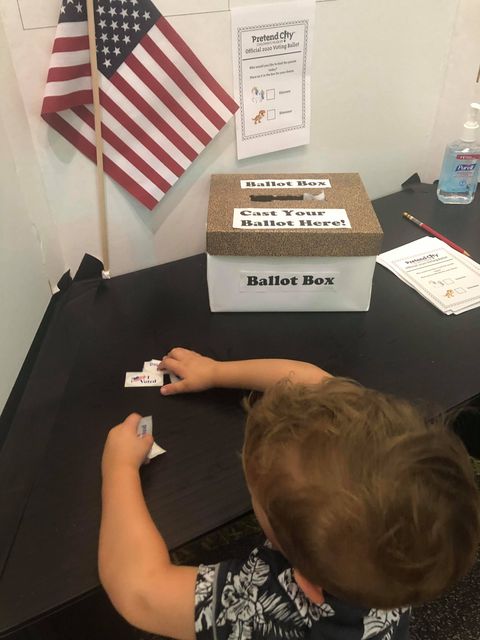By Adrie Van Wonterghem
November 2, 2020
Signs of the 2020 election are everywhere. From yard signs to flags to billboards and TV advertisements, the weight of this year’s Presidential Election is on everyone’s minds, including our children. Though they may not understand the complexities and fears this election has stirred, our children are not immune to the constant presence the election has had in our everyday lives. As it all comes together on Election Day tomorrow, are you prepared for the questions your little ones might ask?
Developmentally appropriate conversations about this year’s election can provide opportunities for parents to discuss voice, advocacy, and decisions. When your little ones ask about the Election, their questions serve as entry points for you to emphasize that:
- Everyone has a unique voice
- Each person can make change happen
- Each voice is equally important
- Sometimes we disagree with others
- Sometimes we are disappointed when our voice is not heard, or the outcome is not what we wanted.
- Being respectful to others is always important.
We can introduce our children to the power behind their voice and opinions by allowing them to be “agents of change” and voice their opinions about choices they experience in their lives. For instance, explore your child’s thoughts on your normal routine. If your family typically enjoys a certain meal each day of the week, ask your little one what they think and if they would like to choose a different meal that week. If you typically read together before bedtime, have your little one choose the book and practice explaining their thoughts, as you question why they selected that book. By actively thinking through and making choices with our little ones, we assure them of the power their voice has.
Amidst the stress and craziness of this year’s election, take time to consider its impact on your child. Answer questions with developmentally appropriate language when they arise and use Election Day as an opportunity for learning about our responsibilities as citizens and the power our individual thoughts and opinions have. For more information on how to explain voting and model what happens on Election Day, be sure to check out our Election Programming on our Facebook Videos.

